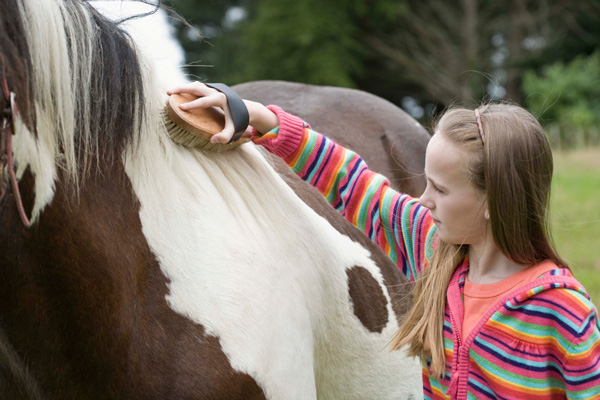
The following information about equine nutrition and oils in horse diets was written by the nutrition experts at Kentucky Equine Research.
Think about your horse’s diet for a moment. It is probably composed mostly of forage, whether it is pasture grass, hay or hay products such as cubes or pellets. Perhaps your horse is also fed a typical concentrate, the main ingredients of which are cereal grains, molasses and a supplement pellet that includes protein, vitamins and minerals. Offer a salt block and water, too.
How much fat can be found in this diet? If you guessed very little fat, you’d be right. So, how and why is fat added to equine diets?
Supplemental fat is typically added to diets through the use of common oils, including corn oil and soybean oil, with the goal of boosting the energy density of each meal. This allows more calories to be delivered per mouthful of feed and prevents overfeeding of starch-heavy meals. Fat can also be fed as rice bran and full-fat oil seeds.
Even though fat is not a typical source of energy in their natural diets, horses are incredibly adept at using fat to fuel exercise and increase body condition. Another positive side effect of feeding fat is a bump up in skin and coat condition.
For years corn oil was the go-to fat supplement. Research has shown, however, that more attention should be paid to fat quality or fatty acid composition. Corn oil has an unbalanced omega-3 to omega-6 ratio, so some people have backed away from feeding it, choosing instead to feed concentrates that have multiple energy sources (starch, fat and fermentable fiber) or other oils.
For owners that want to include the benefits of omega-3 fatty acids into their horse’s ration, one rich source is fish oil. Thanks in large part to deodorization and flavoring technology, fish oil is extremely palatable. The omega-3s in fish oil help with many inflammatory conditions, including skin problems and joint wear.
Kentucky Equine Research offers EO-3, which is a marine-derived source of essential omega-3 fatty acids. Visit KER.com for more information about the company and its products.


